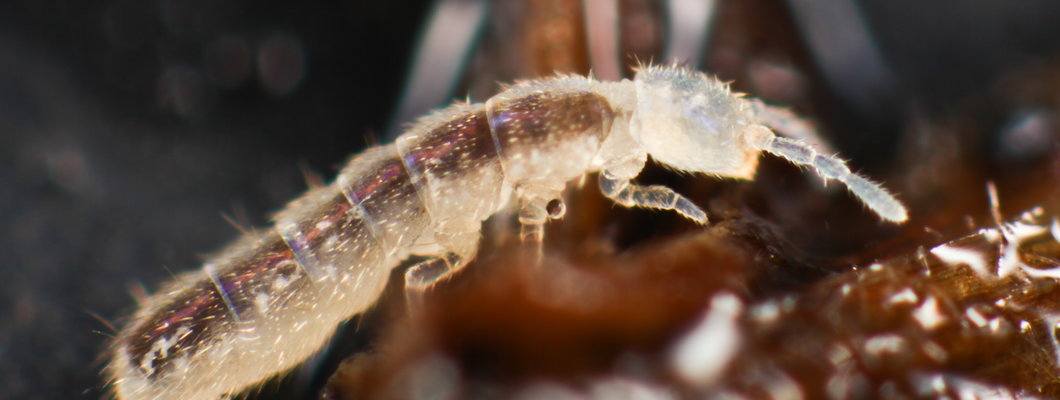
When an area is polluted, the identification of the cause and the risks it involves is crucial before further actions can be taken.
For this reason Bioclear earth together with the Vrije Universiteit Amsterdam developed a test that quickly detects the ecological risks generated by the contamination.
In this newly developed test we make use of the abundant, little soil organisms, called springtails (Folsomia candida). Springtails are exceptionally sensitive to pollution. The presence of toxins results in a stress response in these soil organisms. Different types of contaminants elicit different stress responses. When they come in contact with these compounds, they respond by synthesising specific enzymes to reduce their stress levels. By analysing these organisms we can determine if they experience stress due to the contamination and to which contamination in particular. The analysis can also show stress being caused by other reasons, such as the pH level (acidity) of the soil. This ensures that the results are not clouded by other factors. Thanks to the iSQ test risks can be identified clearly and quickly. Hence, resulting in a thorough overview of the ecological risks in the area; these results provide a solid basis for a plan of action.
Advantages of the iSQ test:
Do you want to know if the iSQ test is applicable in your situation, please contact Freek van den Heuvel.
